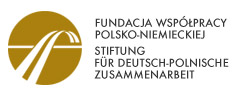Policy Workshop Examines Subsistence Agriculture in Peri-urban Communities
UKZNDABAonline about EWA-Workshops
25.08.2014 | WECF Press Coverage UKZN
UKZN’s School of Built Environment and Development Studies (BEDS) in partnership with local NGO, Decentralised Environmental Solutions (DES), recently hosted a policy workshop which investigated the role of subsistence agriculture in peri-urban communities as a tool for facilitating women’s economic empowerment and participation.
The workshop was a feedback platform for the three-year programme titled: “Empowerment Women for All (EWA)”, supported by the European NGO, Women in Europe Organising for a Common Future (WECF), and funded by the Dutch Foreign Ministry.
The programme has been implemented in five countries, Georgia, Kazakhstan, Tajikistan, Uganda and South Africa. DES is a local project partner for the EWA programme.
The policy workshop provided a platform for DES to share lessons learned from the project. The workshop coincided with an evaluation visit by project partners from Europe which added an interesting dimension to the discussions.
Also attending the workshop were local NGOs, the eThekwini Municipality, the Provincial Department of Agriculture and UKZN’s Professor Pearl Sithole and Dr Mvuselelo Ngcoya from UKZN who shaped and directed the discussions.
Sithole as a panellist and Ngcoya as programme facilitator were tasked with giving direction to policy discussions.
Sithole argued: ‘Who needs training? Communities are flabbergasted by the elites.’ She reiterated that elitist attitudes in subsistence agricultural interventions were detrimental.
However, she added that the efforts by organisations such as DES and others should be applauded. ‘Academics have a lot to learn from these organisations in terms of getting their hands dirty,’ said Sithole.
Ngcoya raised key arguments around the “bigger the better” attitude by implementing agents. His arguments were centred on the interventions being directed at creating larger farmers from small scale subsistence farmers instead of focusing on giving them tools to sustain themselves. He argued that the focus should shift from that attitude to focusing on productivity and sustainability of small scale subsistence farmers.
Other key themes arising from the discussion included the unblocking of institutional clogs; the use of technology as a positive development in agriculture; re-evaluation of the SETA model, and the issue of certification and how it hinders or promotes youth participation in agriculture.
A small-scale farmer from Mtubatuba, Ms Fakazile Mthethwa, challenged participants about the knowledge used in agriculture. She asked why indigenous and sustainable methods such as permaculture were not promoted and lambasted the government for not showing faith in ancestral farming methods.
Mthethwa also criticised people for making poor choices about food.
Participants at the workshop believed a more structured and focused policy discussion was needed in the future. However, the workshop succeeded in bringing like-minded organisations, community scholars, practitioners and government officials under the same roof.
Melissa Mungroo
You can find the original Article here UKZNDBA online.
































